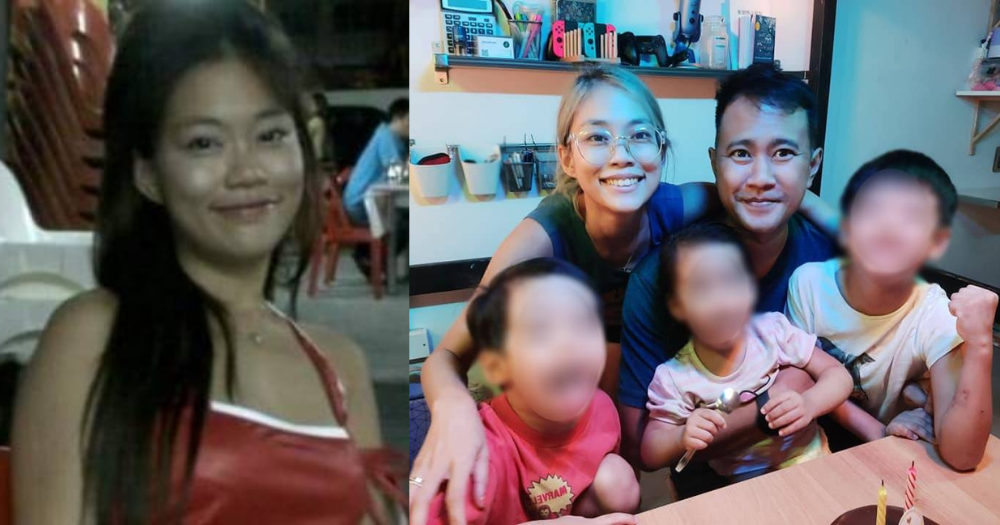Follow us on Telegram for the latest updates: https://t.me/mothershipsg
PERSPECTIVE: "I just kept running, and I didn't know why. [...] I was looking for the little girl I used to be, who was happy; the little girl who had dreams, who wanted to go to JC, who wanted to be a lawyer. But she was gone, and she never came back again."
Ling Anne Hsieh's childhood was anything but stable. After being given up for adoption behind her teenage mum's back, she lived with a foster family, her great-grandmother, and then her biological mum again before running away at age nine.
She spent her teenage years in Geylang and working as a KTV hostess before becoming pregnant with her own daughter at age 15.
Now 30, Hsieh is the co-founder of Project Green Ribbon, a non-profit organisation dedicated to mental health and awareness, with the goal of eradicating mental health stigma.
Hsieh shares about her childhood, her experiences growing up, and her journey to find healing and growth from the trauma that she endured.
By Ling Anne Hsieh, as told to Jane Zhang
My mum had me at 16.
In my first year, she looked after me. She showered me, she fed me, she brought me with her to school, while she was doing her N-Levels. I was always crying and distracting her in class, yet she still brought me.
She loved me a lot.
Then one day she overheard Ma Ma (her grandmother, my great-grandmother) and Ma Ma's oldest son saying that they wanted to give me up for adoption. She was very upset and very angry about it. But yet, she kept quiet as she felt that there was nothing that she could do.
I don't remember much because I was too young, but until I was probably about three or four years old, I lived with Mother and Father. And I had three elder siblings who were very much older than me. They were my foster family.
Things were really amazing. It was beautiful living with them. I was a Sunday school girl. Life was very simple, very happy, very cheerful.
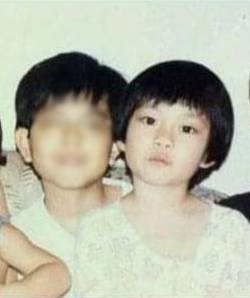 Photo courtesy of Ling Anne Hsieh.
Photo courtesy of Ling Anne Hsieh.
But then I started fussing a lot, and I was shifted to live with my great-grandmother, Ma Ma.
Living with Ma Ma
It was fantastic with Ma Ma as well, although she was very stern — if I didn't wake up from bed or I didn't do something that I was supposed to do, I would definitely get punished for it. She would not hesitate to reprimand me for it.
But there were days where I could still get my way, like I could ask her for ice cream on Sundays. And Ma Ma cooked very well, so there was very nice food also.
Overall, it was really very heartwarming, because even during celebrations — like Chinese New Year — there were lots of people, there was lots of good food, and LOTS of ang paos (red packets). There were a lot of people around all the time.
And there were holidays — we went to Hong Kong, we went to Genting. Life was great!
There was a period of time when every Saturday and Sunday, I would go to this auntie and uncle's house. But this auntie and uncle's house was not somewhere I wanted to go to. It was very dark, it felt very lonely.
Every single time I went to their house, it smelled of cigarettes, because they smoked and there was air con in the house.
I just didn't like being there. In the houses that I'd lived in, the windows were all open. But when I went to this auntie and uncle's house, the windows in their house were closed.
Going from the world that I was in to the world that I was introduced into, it was like going from light into darkness. So that's how I felt, emotionally and physically.
Found out the auntie was my biological mother
I think I found out that this "auntie" and "uncle" were actually my biological mum and my stepfather probably when I was around seven or eight years old.
When Ma Ma told me that, I was not very happy about it, and I cried and I kicked a fuss.
I don't remember why, specifically — I think Ma Ma was sick — but I just remember that eventually, when I was around nine years old, I was placed back to live with my biological mother. And shortly after, Ma Ma passed away.
Living with that family was cold. Materially, there was everything. But it was cold, a house that I didn't want to be in. I would have rather been anywhere than in that house. I'd rather be on the streets than in that house.
Even till today, if you ask me and I look back again: as a kid, did I regret running away? No, I did not. I would still rather be anywhere else than that house, because the house had no warmth. That house was not a family. There was no love. It was just filled with so much anger and shame.
Running away
I was about nine when I started running away.
In the beginning, I was running away because I didn't want to be in that house. I stayed at the playgrounds and the HDB blocks.
It started from probably a few hours. And then a few hours turned into one night, or two nights, or three nights. And then you know, I would meet friends, and move from one group to another.
When I was out of the house, I was always thinking, "Okay, maybe if I go into this home, I will feel better. If I'm with this group of friends..." Yet I still kept running.
During the times where I was running, I was always in fear. I was very scared — lots of anxious feelings that people would leave me, would abandon me, would say that they'd come back but they didn't come back. The nights were long, the evenings were insane.
I wanted to go back to Mother and Father's house. I wanted somebody to help. I was desperate for someone to talk to me.
That's why I flagged a police car at midnight, and I told the police I just wanted to go home to my foster family, but they didn't send me back home. That's why I still went to speak to the school counsellors, to my social workers or my teachers. I sat in my principal's office for countless hours.
Everyone just ignored me. Or, like my classmates' parents said to me, "Go back home because your family loves you. I'm sure your family loves you". Or they said I was a bad child: "Oh, she's just bad. She doesn't want to listen. She's rebellious, always lying, stealing. Talk to her don't listen. She'll never listen. Lazy. Dirty."
Like, really? At nine years old, 10 years old, 11 years old — does it make sense to call a child that?
Is it not common sense to think that something was wrong? It's not about blaming the child. Yes, children make choices, but to what extent are children free to make their own choices? It's easy to just blame the child.
And I was just so desperate. And I was looking for help, but no matter which way I went I was not able to look for the help that I thought I was supposed to get. I always had this thinking like, you know, if I go to an adult, it means it must be right.
But I was wrong. It just got worse over time with the different agencies and bureaucracies that I was in, and the different kinds of people and adults that I met. So the trust was broken tremendously as a child, and that carried on even as an adult in my life.
Staying in hostels and the Girls' Home
Around age 11, I was already living in different hostels. I would rather have been in a girls' home rather than my own house.
I wasn't very taken to. People were not very happy or friendly with me.
One good thing I am blessed with is that nobody hit me, nobody beat me, nobody slapped to me. It's just that people were not very nice with their words or people just ignored me.
Being the youngest girl in there, you know, I probably was just an annoying little prick who people thought was just so childish.
Most of the time, we didn't have that same understanding with one another, and I realised that they came from very different backgrounds from me. Like when I was talking to them, they'd be like, "Don't jiak kantang with me." It means don't pretend to be an ang moh or something.
I was just speaking English, but they didn't speak that way, so it was very different backgrounds and we couldn't really get along. I think that was also why I was so outcast.
Eventually, we never really became best friends, but I got on just fine, floating through — on some days they'd talk to me and some days they just wouldn't, but that's about it. So I was alone all the time.
I was running away as well. The first hostel, I think I ran away at least four, five, or six times; I don't know how many times, but many times. The second hostel, I think I only ran once or twice. And then in Toa Payoh Girls' Home, I ran again once.
And every single time I'd run, then I would feel so sad. Like, why did I run? And I'd regret it. And then I'd do it again. The cycle never broke.
Living in Geylang
I was discharged from the girls' home around age 14. That was when my life in Geylang started.
I was living in Geylang and I had a boyfriend. Then I had a baby with him, but I aborted the baby after.
I basically stood at Geylang pretending to be a prostitute. Then I would go into the room and I would tell them to go and shower, and I would steal their money and just run out the room. I did it a couple of times, until the point where I realised that I had to stop.
Because even though I had a lot of bigger "brothers" in Geylang who would look out for me if I was in trouble, I know that eventually if I kept doing this and someone found out, I was going to get caught.
Even before I had actually done any of the stealing or the cheating, I had actually tried doing the actions [of prostitution] on their own, but I couldn't go through with it. It was just too difficult for me, and so I didn't manage to pull through.
That's why I resorted to realising that "Eh actually, if they go inside, they will shower and after that I can just take out the money from their wallet and just run out."
I was trying to survive.
And even though I didn't go through with it, the fact that I was there, even in the room with the person, gave me a lot of guilt, a lot of dirt, a lot of shame, a lot of disgust. I just couldn't really put a word to it.
I was very scared all the time.
But I came up with a different persona, so I was no longer little Ling anymore, but the Ling that had to survive. She has a name: she's just called H. And it's the name that I survived in.
H is a different personality, and she's been there to actually protect me. She's very wilful, she's very playful, she's very daring, she's just not scared. It's like, "You wanna kill me? Kill lah. Want to fight? Fight lah! I don't care. I don't give a shit about the world. I want things this way means I want things this way." And she just does what she wants, you know?
Self-blame and guilt
And eventually after that, I left the guy because I couldn't deal with being there anymore.
There was a lot of disgust, there was a lot of shame, there was a lot of guilt, there was a lot of self-blame in that entire period — so much so that I've not even dealt with it very much even till today.
I would just blame myself for all these moments. I would ask myself like, is it really me that was so bad? Why am I living here? Why did I choose even stay in Geylang? Should I have just listened to my mum? Should have just listened to all the adults? What should I have done?
Interviewer: Do you still have feelings of shame attached to that period of your life?
The darkest and the hardest thing for me to ever talk about, is about the men that I've been with. It's the darkest thing that I have to come to terms with, because technically speaking, it was still a choice that I made, right?
I chose the best out of what I knew at the point in time. But was it really the best? It wasn't, but I chose what I saw as the best that I knew.
But to a certain extent, regardless of the age, it was still a choice I made. And I guess I'm also dealing with accepting that, trying to accept that it was still a choice.
My hands were not tied. I probably felt that that was the only choice. And so with the options that I had, I just chose the best one that was available to me at that point. If I could go back again would I do it? No, I wouldn't.
At that time, it was a very confusing state for me.
I just couldn't bear going back to my house again because, my goodness, I felt so suffocated in the house. And I was so desperate that I still chose to be on the street.
It's not that I was having fun, you know? I wasn't partying and having fun and loving it. No, I was self-destructing and self-sabotaging. I was gambling with my life, and at such a young age.
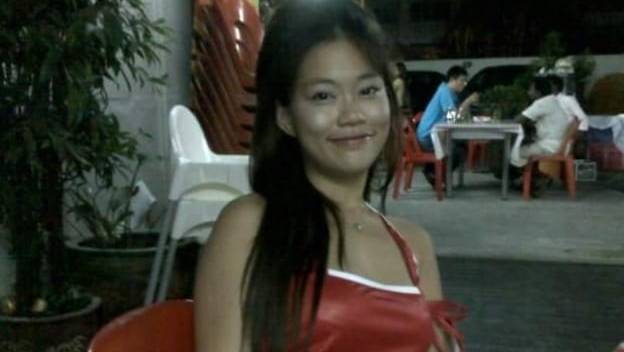 Photo courtesy of Ling Anne Hsieh.
Photo courtesy of Ling Anne Hsieh.
After I left that boyfriend and Geylang, I went to a different guy — a guy called "M" — because I felt hope. I thought, maybe now there's hope again, possibly, because friends are useless, adults are useless, my friends' parents are useless.
M was actually the one who saved me. He looked after me, gave me a home, gave me clothes to wear. But after a few months, I realised, eh how come his money is gone?
I had to go and fend for myself, and that was when I went to look for a job. I looked in the newspaper and I saw "GRO" — Guest Relations Officer, working in a hotel.
There was no formal interview — at 14, you don't even know what an interview is supposed to be like, so you're very naive still. I just sat down and I got the job, so I was very happy!
I couldn't see what the girls were doing in the rooms, so I didn't realise that this was actually a hostessing job.
When I just started out, I did everything the other girls were doing, and I thought that was normal — all the actions and all the activities that they were doing — something that I've never really admitted or even talked about until recently, actually.
I thought that was the way it was, that I was obligated to do it.
Then over time, I started realising that even somebody who doesn't touch me still gives me S$50, for example. And if you do more, you get more money, but I couldn't continue with it.
And so that was when I started building my resilience as well. And I'd say, "You know what? F**k you. I will just do what I want to do."
I started growing my own character and I became a very different person. And I started realising that I didn't need to do sh*t to get money.
It was like, "I don't owe you anything because you don't give me a single thing. Don't tell me I have to go inside this room to entertain your customer and make your customer happy."
M was manipulative, abusive
During this time when I was with M, he was very difficult. I didn't know what manipulation was at the time. I didn't know anything lah.
He would blame me for everything and I would foolishly actually think it was all my fault. Like when he was abusive towards me, he'd say it was because I talked back. I'd be like, "No, I never talk back what." But after that, I'd start to think that, okay lah, maybe it was really me.
Because everyone was saying it was my fault. In the relationship, he said it's me. My parents said it was me. Everybody said it was me, so I thought it must be really me lah!
I thought to myself, this guy is a good guy. He fed me, he gave me clothes. Then maybe it's really me. So I started to believe and think that it was really me, that it was my mouth, that I was not listening, that I was not good enough.
When I first started working at the KTV, very, very early on I met Iskandar, my now-husband, who was actually one of the customers in the room.
I asked him to take me away from that life, but it just never happened.
And I was quite disappointed actually. After having been with M, and thinking that Iskandar would take me away but it didn't happen, I started losing my trust as well and then I just moved forward.
Then I had different guys and I just did whatever I wanted, like self-destructed and gave myself up. I just did whatever I wanted to do. I've never really mentioned this to anyone.
I wasn't nice to people. I had the mindset like, if you want something from me, then what is it? There must be something in exchange. You want sex from me, or you just want something from me. What is it you want? Don't pretend, don't waste my time and your time lah.
I didn't care. It just didn't bother me, because nobody cared, so what difference did it make?
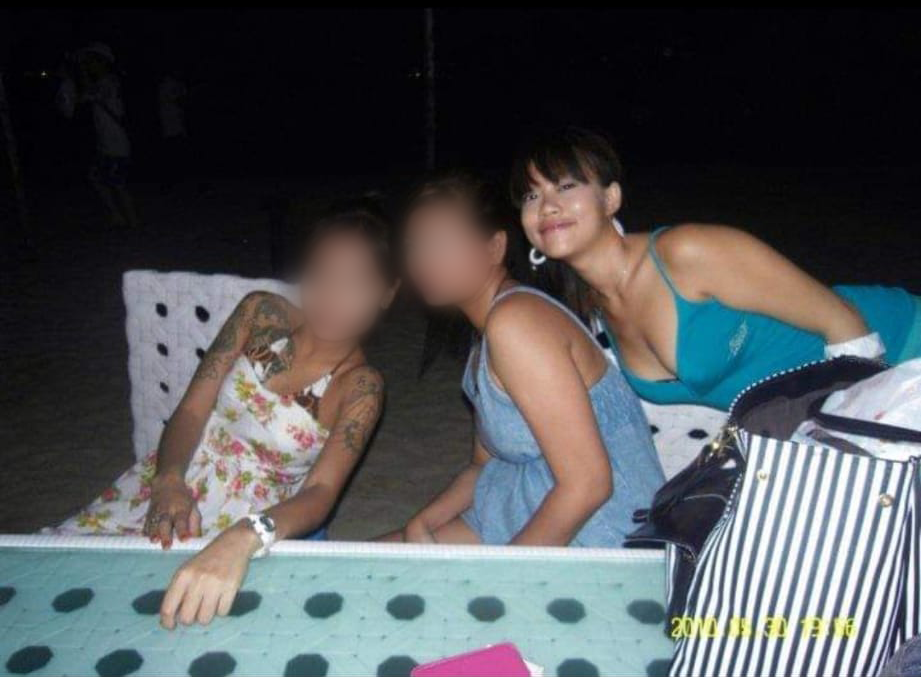 Working as a KTV hostess. Photo courtesy of Ling Anne Hsieh.
Working as a KTV hostess. Photo courtesy of Ling Anne Hsieh.
Became pregnant with M's baby
Eventually, when I was 15, I got pregnant with M's baby. And then I found out that M cheated.
I stood there and just asked him, "Why did you do this?" And the girl just told me that, oh no, they're just friends and they didn't do anything, and all that.
It came to a point where M actually said to me, "You're a f**king manipulator, Ling Anne," in front of the girl.
Slowly afterwards, he stopped coming home. And I started taking drugs.
He just came home every three days to pass me a S$10 note and one contraband packet of cigarettes. Even though he said he wasn't with the girl and the girl said she was not with him, sometimes the girl would use his phone and remind me that they were together and mock me.
I really felt like dying and I really just wanted to die, because I couldn't believe what was happening and I was trapped and I had nowhere else to go and I didn't know what to do.
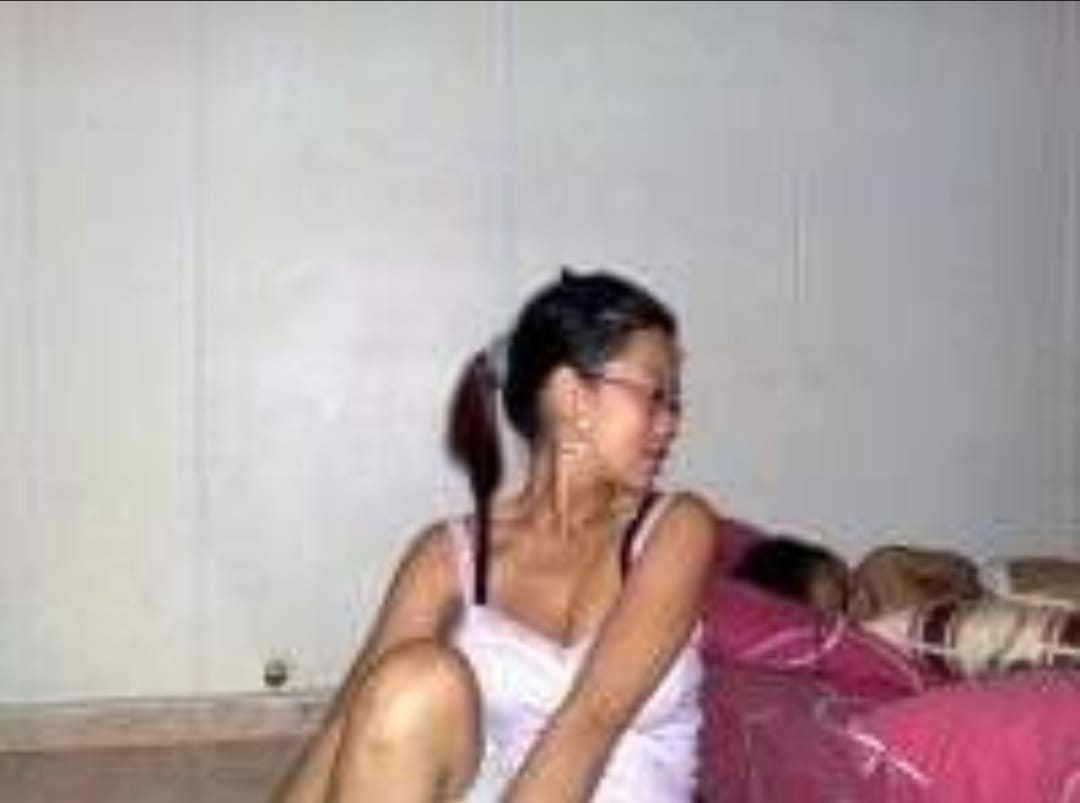 Pregnant at 15 and doing drugs. Photo courtesy of Ling Anne Hsieh.
Pregnant at 15 and doing drugs. Photo courtesy of Ling Anne Hsieh.
I didn't have any money, I was pregnant with M's child at age 15, and my whole family was like sh*t. What was I supposed to do?
Eventually I left. Somehow — I don't know how — my mum came into the picture and got me a place to stay. Not in her house, she just rented a room for me. She didn't talk to me, nothing else — that was just it.
That very day when I was going to deliver, I called M and I said to him, "I'm going to deliver, so can you send me to the hospital?" and that was when he said to me, "Oh, I'm eating with F. After I've eaten with F at Downtown East, I'll come and pick you up and send you to the hospital."
That was the very day when I stood at the windows, nearly 7am in the morning, and I said to myself: "If I choose M, my baby's gonna suffer. If I choose my baby, I will suffer."
So I chose my baby.
I called the ambulance. I went to the hospital on my own.
After I went to the hospital on my own, I threw a fit inside the hospital. I flipped everything inside the room, and the nurse told me, "There's no point in doing all these things, because at the end of the day, you're still alone. So don't kick a fuss."
You know, that day, I really wanted to die. I was just texting everybody and saying my thank yous and my apologies. I just wanted to end my life. I was really hoping I would just deliver the baby and I would just die.
But the baby turned out healthy — 100 per cent healthy and well. And in that moment when the baby came into my arms, I could never ever express that again, because... wah, how can somebody love a thing like that so much?
Like where the hell you came out from? How come I can love you ah? It's impossible. Like I just can't describe it.
Until today, I just cannot understand that moment. I had been so sure I was going to give her up. I was so sure I wasn't gonna keep her. You see, the universe is wonderful, right? How wonderful the universe is. So impressive!
But I did end up having to give her up, because if I didn't give her up, they were going to take her away, because I was so young.
Constantly running away
So, I left, and there were other things that went on in my life.
I went out with different guys again, different friends. And I had good guys, but they were just too good. Too good! It was like, "Hey, do you know what's behind me? I have a storm okay? I've got a tsunami behind me that I'm carrying on my shoulders. You have no idea what you're asking for."
These guys were just too good, too nice, too simple, too sweet, too stable, too normal. Even when I had good guys, I'd run away. I ran from healthy places even when I was given a choice.
And that's the part I kept questioning myself: Where am I running? Where do I want to run to? But I just kept running, and I didn't know why — I couldn't put a finger to it.
Even when I thought, "Eh, I should be okay here!", I wasn't. Even if I was in another home, I was not okay.
Only very recently, I learned in a hypnotherapy session that I was running away from me, because I was looking for the little girl I used to be, who was happy; the little girl who had dreams, who wanted to go to JC, who wanted to be a lawyer. But she was gone, and she never came back again. It's like the original me, you know?
Eventually, I got engaged again. And then he cheated. And so I ran and then I began living at a fish shop. I was in distress again.
Then I went back to the KTV and that's when I met Iskandar (my now-husband) again, coincidentally. This was many, many years after we had last met.
His first question to me was, "I thought you never work already" or something like that. And after a while, we just started chatting.
One day I texted him and asked him for help. I ran for my life from the fish shop. I was so scared, as the man I was living with at the fish shop could get so violent when he was angry, once even slamming an entire cupboard down.
With my last S$50, I took a taxi all the way from Upper Changi Road down to Bukit Panjang. You have no idea. That bet that I took... like what if Iskandar didn't appear? I didn't even know where in Bukit Panjang he lived, or at what block.
What was gonna happen? I had no extra clothes with me, nothing. Just the phone, and what if the phone battery dies?
But Iskandar accompanied me on the phone all the way until the car turned into the car park. And then we put down the phone, and he appeared and he never left.
We're working on healing from our own trauma now
In my journey, throughout these ups and downs, even though my husband has his own conditions — mental conditions, and he was an alcoholic, but he sought help and he's still going through therapy himself — the one thing for me is that he never left and he's still hasn't.
 Ling's foster family (faces unblurred), to whom she feels immense gratitude for all that they did for her, attending her wedding in 2014. Photo courtesy of Ling Anne Hsieh.
Ling's foster family (faces unblurred), to whom she feels immense gratitude for all that they did for her, attending her wedding in 2014. Photo courtesy of Ling Anne Hsieh.
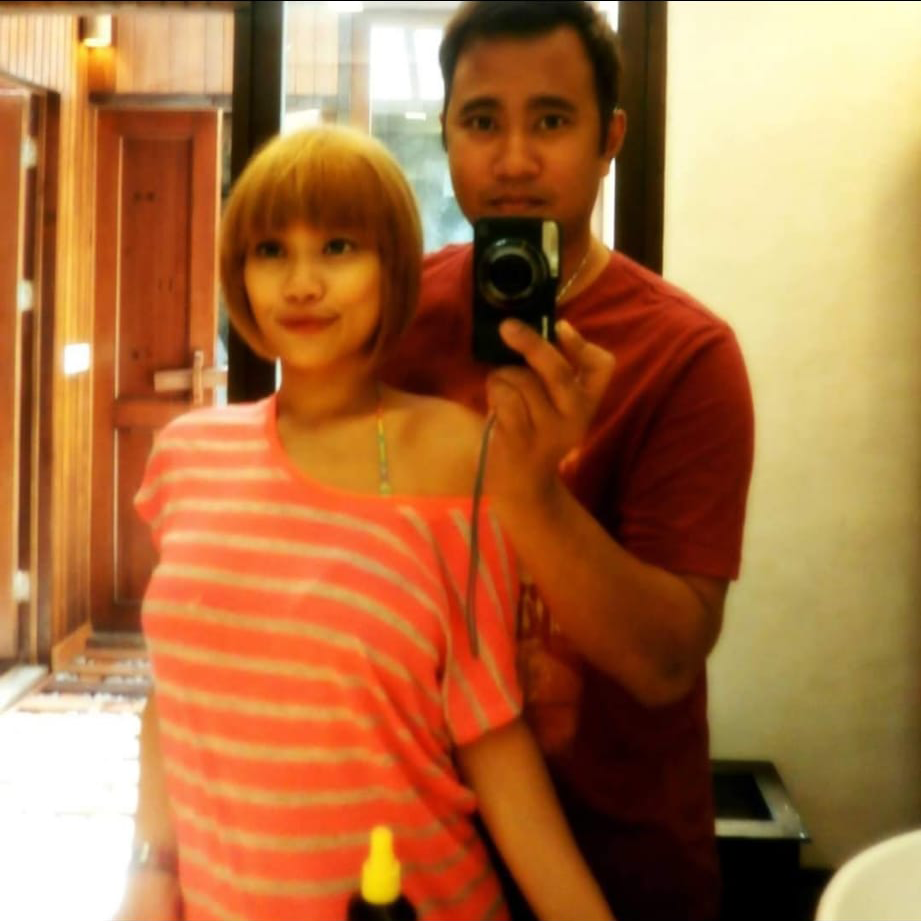 Ling and Iskandar on their honeymoon in 2014. Photo courtesy of Ling Anne Hsieh.
Ling and Iskandar on their honeymoon in 2014. Photo courtesy of Ling Anne Hsieh.
Like, who can deal with so much trauma? And he had his own trauma. He's learning as well.
Every challenge we face is double the challenge. Let's say parenting — we have three young kids together, aged eight, five, and three — it's double the challenge, double the anxiety. We take turns having anxiety. Every single night is like, are you okay? Am I okay? Are you okay? Am I okay?
In all of that is how Project Green Ribbon came about; between my husband and I, when we were searching for ourselves. That's the reason why we're so passionate. It's helping us first, because we need that purpose and meaning for our own selves.
Project Green Ribbon has so much meaning for me today because I've received a lot of kindness along the way and I choose to look at that. I choose to focus on the kindness even though there's pain, even though it makes me cloudy.
But I choose to believe in love, as difficult as it is. I choose to look at the imperfections. I try my best to do my best and this is what Project Green Ribbon is really about.
When I look back at my entire life, even till today, I ask myself: was it the choices that I made, or was I just dealt with a bad card at the very beginning?
But I decided to say, let's use the power of helping yourself through the act of helping others.
The reason I'm telling my story is because if there's someone else out there going through the same thing and could possibly take something away from it, to know that there's hope or that they can make a different choice, then it's worth it.
Because regardless of whether I share it or not, it's already there. It's not that my life is gonna get better or that the pain's not going to be there, right? So why don't use it to possibly turn it into something positive for myself and for another person?
Interviewer: How do you raise you children? How are you teaching them about connecting with their emotions, dealing with mental health, things you didn't have in the past?
To be very frank, I can't say that I can teach them, because still I'm teaching myself now. And I believe that if I teach myself and I educate myself, they will see. We don't really need to teach them. Children pick up on their own.
They just learn through life. And if I don't have the answers of how to connect with myself, how am I going to teach my children to connect with themselves? I'm trying to learn how to connect with myself. And so is my husband.
We've had arguments, we've had disagreements, we've had conversations about what's best or not for our kids. But I think all of this, as a whole, isn't that an experience and isn't that how kids learn?
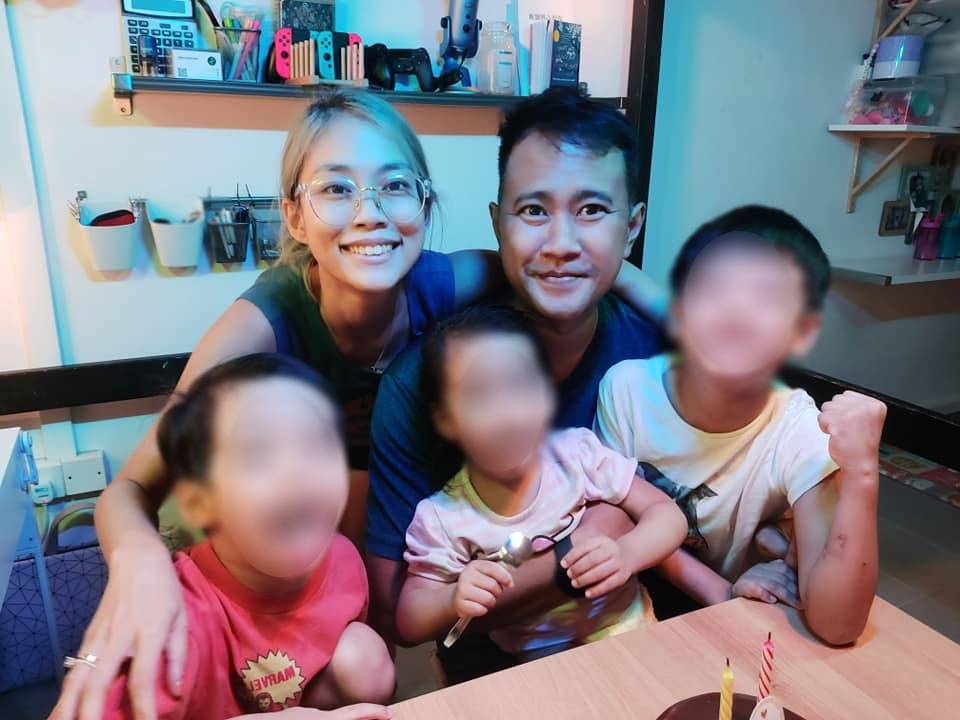 Ling, Iskandar, and their three children. Photo courtesy of Ling Anne Hsieh.
Ling, Iskandar, and their three children. Photo courtesy of Ling Anne Hsieh.
Interviewer: Are you ever afraid or worried about if they might end up struggling with the things you had to?
All the time. And sometimes I feel that I do so much, but yet I do nothing.
I constantly remind myself that that is their journey to take, and there's nothing I can do about it. I can't prevent them from falling down, can I? I can't.
But I can be there for them and with them as long as I can.
When we talk about intergenerational trauma, it's a ripple effect that happens without people knowing and people not wanting to do anything. So it's no one's fault, either way, you know.
Sometimes when I look at myself and my children, I realise that it's not my fault that this has happened to me, but it's my fault if I realise it, and I don't do anything about it.
As long I'm aware about it, and I'm making an effort to do something about it, there's progress. And progress is something that cannot be measured.
And I can give them the best skill ever, and that is to just lead by example, and show them the imperfections in life, so that if they fall and if they cry and if they feel sad, they know that it's normal to cry and feel sad. It's not normal to be smiling all the time — if so, there's something wrong with you.
Overall, I try to tell them or try to show them or hope they will realise that whatever we did, we did our best that we knew. We're trying. And sometimes it feels as if it is not enough because the guilt comes in, but we never give up.
That's what I hope they'll realise one day: we never gave up.
At the end of it, it may not be what they would have wanted. It may not have been the best. But I hope that they will be able to see, as they grow, that their parents were not perfect, and the reason why they saw so much ugliness was because we're not perfect. We were just real.
But we never gave up. And we did our best.
Find out more about Project Green Ribbon and the work they do on their website here and their GIVE.asia page here.
Watch our interview with Hsieh here:
Helplines
If you or someone you know are in mental distress, here are some hotlines you can call to seek help, advice, or just a listening ear:
SOS 24-hour Hotline: 1-767
Singapore Association for Mental Health: 1800-283-7019
Institute of Mental Health: 6389-2222 (24 hours)
Tinkle Friend: 1800-274-4788 (for primary school-aged children)
Top photos courtesy of Ling Anne Hsieh.
Follow and listen to our podcast here
If you like what you read, follow us on Facebook, Instagram, Twitter and Telegram to get the latest updates.
